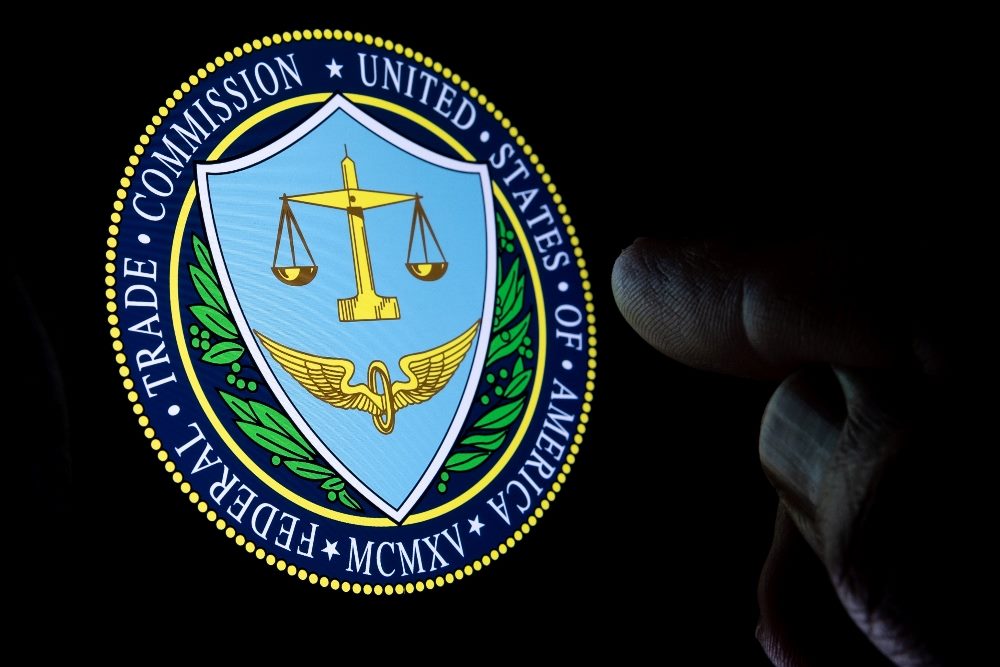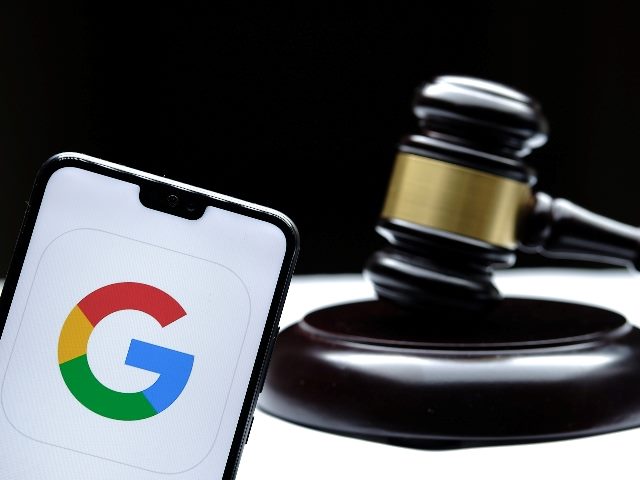The Gist
- Google antitrust case. FTC scrutinizes Google's adtech, impacting consumer choice in digital platforms.
- Google search engine market share. Google's contracts may monopolize search market, limiting user options.
- Google monopoly concerns. FTC questions if Google's operations create a monopoly by restricting customer choices.
When examining the history of business monopolies, notable antitrust trials usually emerge once in a generation, like Standard Oil in 1911 or the AT&T breakup in 1984. These rulings aim to mitigate the impacts on consumers. Let's take a dive into the FTC's Google antitrust case.
No legal cases in business history will have as profound an impact on customer experience delivery as the FTC’s Google antitrust case. The decision's downstream effects are extensive for businesses providing digital platforms for customer service and experiences.
The Heart of the FTC Google Antitrust Case
The business model under scrutiny is Google's adtech agreements for its search engine. Google employs contracts to set its search engine as the default option on computers and smartphones. These deals afford Google massive audience exposure, potentially monopolizing the market by restricting consumer search choices.
According to the FTC, these deals limit competition in ways akin to the cases that led to the judicial decisions breaking up Standard Oil and AT&T.
Detalis of the Deals
As the Google antitrust case has been reported in the business press this year, specific details of the deal arrangements highlight their influence and reveal the lucrative nature of some tech partnerships. For instance, analysts estimate that Google annually pays billions of dollars to distributors to set its browser as the default on mobile devices. These payments go to mobile browser developers like Mozilla and Apple, the latter of which offers both devices (iPhone & iPad) and a browser (Safari).
The Defense
The Google defense argues that its search engine dominance stems from consumption-compelled reasoning rather than secured agreements with vendors. Consumption-compelled reasoning suggests that as people use a product or service more, they perceive its value as superior to competitors. Essentially, increased usage of a service or product enhances customer experience, leading to more usage and attracting additional customers.
For Google, people opt for its browser and search engine due to the quality of their search experiences. Additionally, the more Google searches are conducted, the more frequently people are exposed to other services, like the ads served on a search engine results page (SERP).
Related Article: The Big Tech Antitrust Movement Is Finally Showing Results
How Preventing Monopolies Is Evolving in the Digital Age
The FTC-Google case challenges the core principles of antitrust law. Antitrust cases aim to shield markets from monopolistic practices. The Sherman Antitrust Act of 1890, a pivotal U.S. law, guides government actions in antitrust lawsuits. This act illustrates the longstanding scrutiny of monopolistic influence, traditionally gauged by a business's physical assets and related commercial activities. People often associate business acquisitions with physical space, finding it easier to perceive monopolies where one company controls another's physical assets.

The Digital Narrative
Digital assets present a different narrative. They may lack physical form and visibility but can be programmed to exert an intangible influence as significant as that of a physical asset. Modern technology has shifted influence to a less tangible realm, with the marketplace now driven as much by digital assets as by physical ones.
Data Debates
Data is inherently extraterritorial. Debates on data privacy underscore the resulting operational complexities. Regulations mandate companies to comply based on where their data is used. I remember an interview with a Red Roof manager who mentioned that the company had to adhere to General Data Protection Regulation (GDPR) compliance despite lacking a physical presence in Europe. This was because Red Roof kept records of European customers who stayed at its U.S. locations: GDPR affects companies even if they don't physically operate within EU territories.
Key Monopoly Question
The key question in monopoly cases is: Does a particular acquisition limit options in the marketplace and result in higher costs for the intended customer?
Along with that question arise other vital considerations for business leaders formulating a digital strategy: Can you scale your operations without restricting choices for your customers? The capacity to scale is more seductively easy than ever, yet fraught with the potential to breach agreements.
Developers must assess the user's range of choices when using software. Essentially, is there a genuine option to opt out?
This is at the heart of the FTC's Google antitrust case. The case probes whether Google's operations involve spending to obstruct competition and limit choices that customers would otherwise have. If the answer is yes, then a monopoly exists.
Related Article: Will the DOJ Case Against Google Shake up the Ad Industry?
Blending Platforms With Consumption-Compelled Reasoning Is Changing Business Risks
Consumption-compelled reasoning has implications for business models that have learned to imitate elements of Google’s strategy for profitability. Even Kroger has entered the ad market, competing with Walmart and Target. These retailers have adapted to function as platforms, with numerous companies now positioning themselves as platforms for their customers.
Blending the Physical and Digital
Platforms now merge physical stores with online presence, conveying brand value to customers. Marketers observe retailers blending physical and digital assets to enhance customer experience. Customers at establishments like Chipotle, McDonald's, or Starbucks use apps for ordering, with options for location pickup or delivery. This synergy of media and location adds value; the efficiency and quality of delivery influence the brand.
The essence of a platform lies in its definition: an elevated stage directing messaging attention. Businesses utilize their physical buildings, apps, and websites as platforms to manage their narrative and offer a unified customer experience.
Operating as a platform has implications for customer choice — particularly, whether it's constrained due to platform partnerships. Such a scenario can lead to market conflicts that were previously non-existent.
Related Article: How Did Google Get a Stranglehold on the Digital Ad Marketplace?
The Amazon Effect Strikes Again
The recent announcement of Amazon planning to sell Hyundai vehicles on its site serves as a prime example. This move challenges many states' local franchise laws, which mandate new cars be sold through independent dealers, barring manufacturers from direct consumer sales. Tesla, for instance, had to reclassify its 130 dealerships to navigate these established laws.
Amazon Car Strategy
Amazon's strategy involves listing dealership vehicles online, initially with limited dealer participation. This approach offers Hyundai access to an additional audience for its products, previously unavailable. Moreover, it introduces another channel for Hyundai to manage alongside its extensive network of dealership relationships.
Automotive History
The Amazon news and Tesla’s direct strategy made me reflect on some automotive retail history that demonstrates how significant monopoly influences collide with customer access. In the 1970s the FTC forced Detroit area dealers to extend their operating hours to give customers who did not work at the Big Three automakers more shopping time. More time would allow shoppers to buy a vehicle without having to take a day off from work to find a preferred dealer, test drive a desired car and complete the purchase paperwork. The dealers were given flexibility for selecting the operating hours, so most choose to have longer hours on Mondays and Thursdays, while remaining closed on the weekends.
AI May Be Affected Too
The evolution of AI-enhanced operations could significantly affect AI development. As businesses start to develop their own large language models, they'll need to clearly identify which customer data can be used algorithmically and which platforms have access to operational data. These distinctions form the basis of what services are unique to a platform and what are delivered through partners. Bing Copilot, for instance, uses the same GPT technology as ChatGPT, but users also have alternative generative AI options like Claude and Bard.
Depending on Data
As companies increasingly depend on data to drive their business models, they face the challenge of defining the extent of their platform's influence while adhering to legal standards for fair business practices, such as those set by the set by the Sherman Antitrust Act. This balancing act can impact operations that underpin customer-facing services designed to improve customer experiences.
The World Is Awaiting a Decision
No decision on the case is expected to be rendered in the near future. The Google antitrust case is still in its early stage. Proceedings of this nature can often take several months to years before a final decision is reached, so business leaders have some time to follow the story and, when a decision is rendered, contemplate the potential impact.
